RESISTANCE CINEMA
Presents
“A DAY’S WORK A DAY’S PAY”
Mint Leaf Productions, Produced and directed by:
Jonathan Skurnik & Kathy Leichter (57 mins, color, 2002)
WHEN: Sunday April 5, 2015, 1:15 pm
WHERE: Community Church NY Gallery Room, 28 East 35th St. btwn Park & Madison Aves.
ADMISSION: Free, donations appreciated
First - some background
On August 22, 1996 then President Bill Clinton signed The Personal Responsibility and 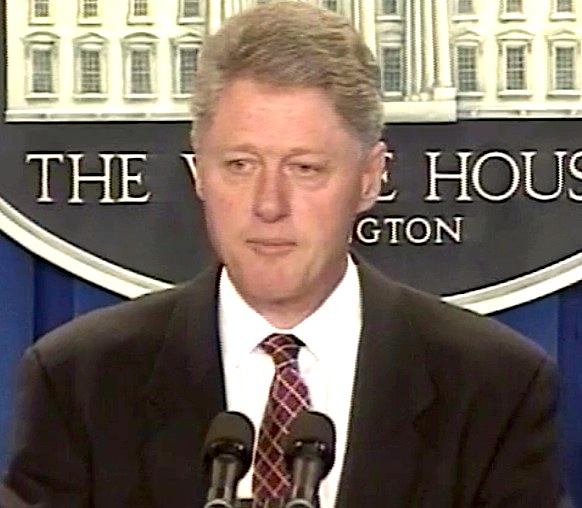 Work Opportunity Reconciliation Act . It’s intent was to fulfill his 1992 campaign promise to "end welfare as we have come to know it". The title reflects the unrelenting criticism over two decades from conservatives to abolish welfare. Considered to be major welfare reform, the bill (PRWORA) was also a cornerstone of the Republican Contract with America.
Work Opportunity Reconciliation Act . It’s intent was to fulfill his 1992 campaign promise to "end welfare as we have come to know it". The title reflects the unrelenting criticism over two decades from conservatives to abolish welfare. Considered to be major welfare reform, the bill (PRWORA) was also a cornerstone of the Republican Contract with America.
PRWORA instituted Temporary Assistance for Needy Families (TANF), which became effective July 1, 1997. TANF replaced the Aid to Families with Dependent Children (AFDC) program—which had been in effect since 1935—and supplanted the Job Opportunities and Basic Skills Training program (JOBS) of 1988. The law was heralded as a "reassertion of America's work ethic" by the U.S. Chamber of Commerce, largely in response to the bill's workfare component. TANF was reauthorized in the Deficit Reduction Act of 2005.
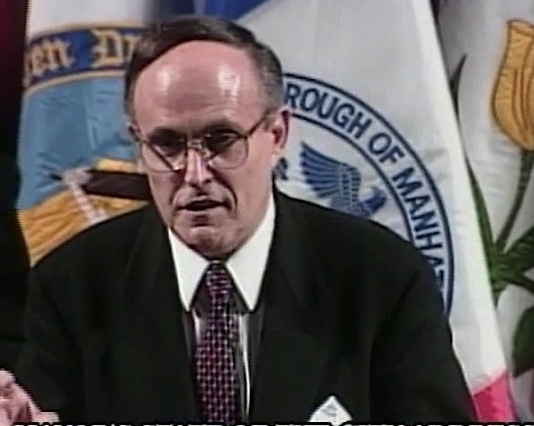 States and municipalities were expected to use their own initiative to fulfill the goals of the legislation. In New York City Mayor Rudy Giuliani heralded his own program promising to lift people out of dependence on government assistance and steer them into the workforce. His program was called the Work Experience Program or WEP. But who was it designed to really help? Was welfare reform the product of a serious analysis of the problems of labor in a post-industrial society or just an expedient political reaction to derogatory stereotypes of welfare recipients generated by ideological motivation? This is a film that looks at those questions.
States and municipalities were expected to use their own initiative to fulfill the goals of the legislation. In New York City Mayor Rudy Giuliani heralded his own program promising to lift people out of dependence on government assistance and steer them into the workforce. His program was called the Work Experience Program or WEP. But who was it designed to really help? Was welfare reform the product of a serious analysis of the problems of labor in a post-industrial society or just an expedient political reaction to derogatory stereotypes of welfare recipients generated by ideological motivation? This is a film that looks at those questions.
A DAY'S WORK, A DAY'S PAY follows three welfare recipients in New York City from 1997 to 2000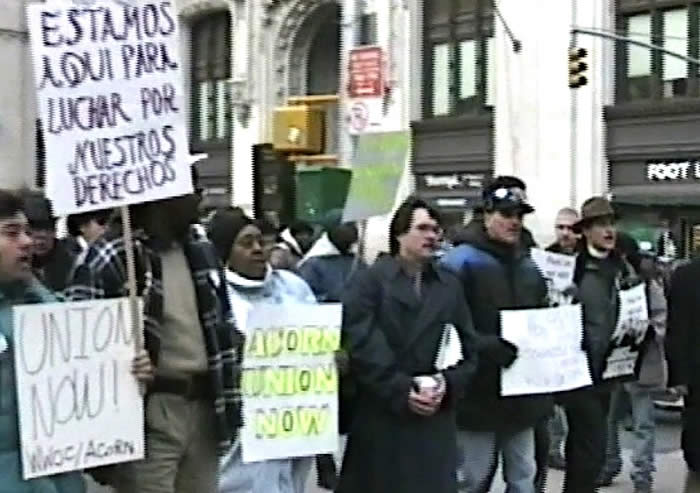 as they participate in the largest welfare-to-work program in the nation. When forced to work at city jobs for well below the prevailing wage and deprived of the chance to go to school, these individuals decide to fight back, demanding programs that will actually help them move off of welfare and into jobs. It was broadcast nationwide on PBS and cable throughout 2002 and 2003.
as they participate in the largest welfare-to-work program in the nation. When forced to work at city jobs for well below the prevailing wage and deprived of the chance to go to school, these individuals decide to fight back, demanding programs that will actually help them move off of welfare and into jobs. It was broadcast nationwide on PBS and cable throughout 2002 and 2003.
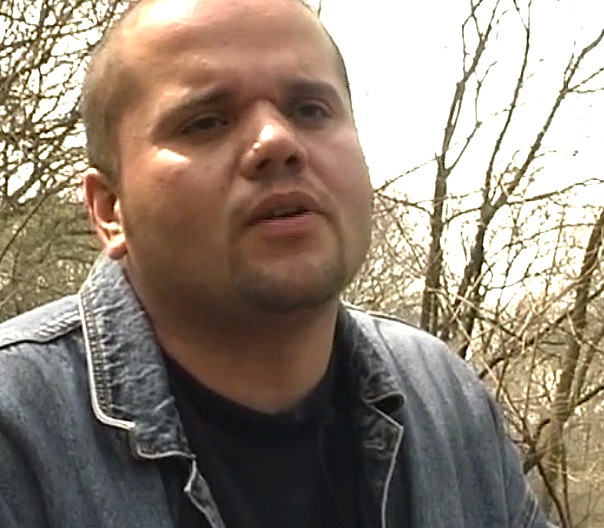 The film traces the personal and political evolution of its three main characters. Juan Galan successfully organizes WEP workers while battling the demons of his own poverty-stricken childhood. Jackie Marte, who drops out of school in order to raise her two children, tries desperately to stay out of workfare, and in the nick
The film traces the personal and political evolution of its three main characters. Juan Galan successfully organizes WEP workers while battling the demons of his own poverty-stricken childhood. Jackie Marte, who drops out of school in order to raise her two children, tries desperately to stay out of workfare, and in the nick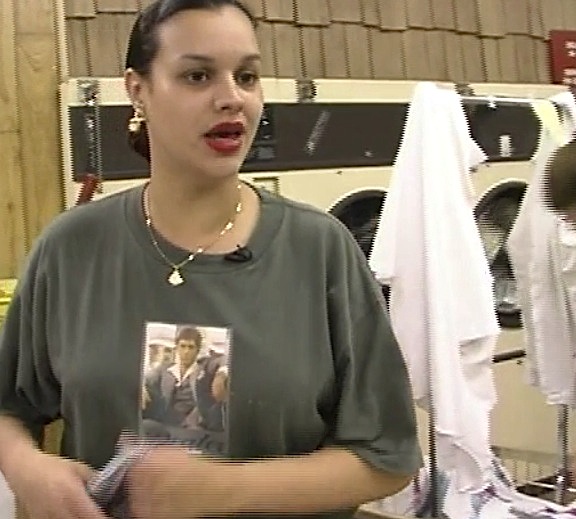 of time succeeds in finding a job-training program that allows her to leave welfare for good. Jose Nicolau overcomes his timidity as he learns to organize against workfare, inspiring his peers with impassioned speeches, and testifying to the City Council about sexual harassment of WEP workers.
of time succeeds in finding a job-training program that allows her to leave welfare for good. Jose Nicolau overcomes his timidity as he learns to organize against workfare, inspiring his peers with impassioned speeches, and testifying to the City Council about sexual harassment of WEP workers.
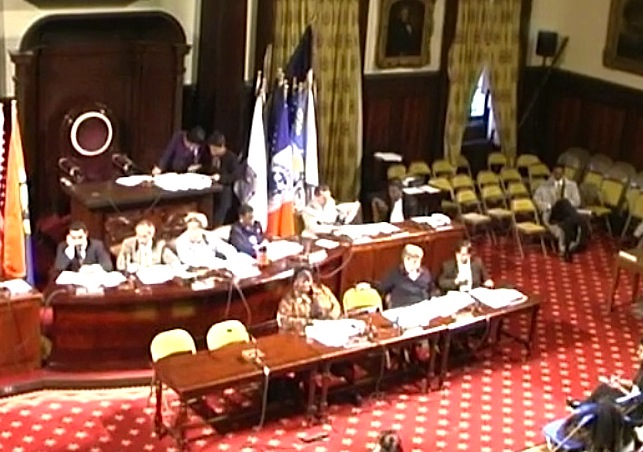 As the film tracks the three-year effort to pass two critical pieces of legislation, viewers will come to understand the real-life impact that social policy has on human beings. They will also comprehend the effort required for poor and working people to transform themselves from victims of the System to fully empowered citizens who take control of their own lives. The events in this film took place some 15 years ago yet its theme is as relevant
As the film tracks the three-year effort to pass two critical pieces of legislation, viewers will come to understand the real-life impact that social policy has on human beings. They will also comprehend the effort required for poor and working people to transform themselves from victims of the System to fully empowered citizens who take control of their own lives. The events in this film took place some 15 years ago yet its theme is as relevant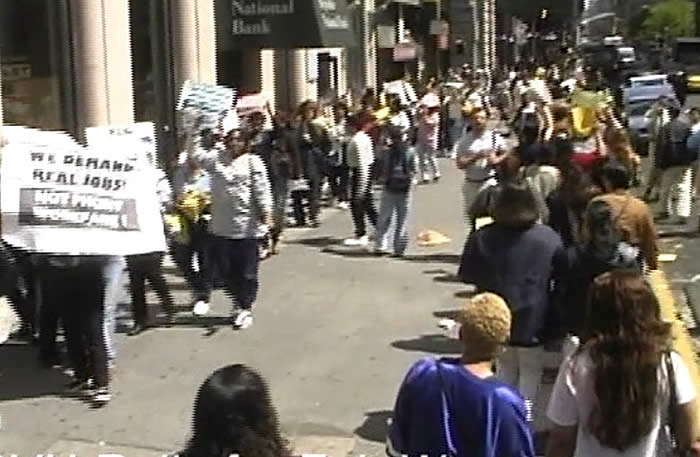 today as it was then. The wealthiest country in the world is developing a permanent underclass. All across the country low wage workers in the fast food industry, the service sector, at Wal-Mart and other chain department stores struggle just to get a wage that barely meets their most basic survival needs.
today as it was then. The wealthiest country in the world is developing a permanent underclass. All across the country low wage workers in the fast food industry, the service sector, at Wal-Mart and other chain department stores struggle just to get a wage that barely meets their most basic survival needs.